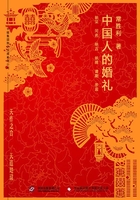His pity becomes so great that he actually does sacrifice something to us--His only begotten Son. Such a process carried to its logical conclusions must ultimately end in His own destruction, and thus we find the pope declaring that God was one day suffocated by His all-too-great pity. What follows is clear enough. Zarathustra recognises another higher man in the ex-pope and sends him too as a guest to the cave.
Chapter LXVII. The Ugliest Man.
This discourse contains perhaps the boldest of Nietzsche's suggestions concerning Atheism, as well as some extremely penetrating remarks upon the sentiment of pity. Zarathustra comes across the repulsive creature sitting on the wayside, and what does he do? He manifests the only correct feelings that can be manifested in the presence of any great misery--that is to say, shame, reverence, embarrassment. Nietzsche detested the obtrusive and gushing pity that goes up to misery without a blush either on its cheek or in its heart--the pity which is only another form of self-glorification. "Thank God that I am not like thee!"--only this self-glorifying sentiment can lend a well-constituted man the impudence to SHOWhis pity for the cripple and the ill-constituted. In the presence of the ugliest man Nietzsche blushes,--he blushes for his race; his own particular kind of altruism--the altruism that might have prevented the existence of this man--strikes him with all its force. He will have the world otherwise. He will have a world where one need not blush for one's fellows--hence his appeal to us to love only our children's land, the land undiscovered in the remotest sea.
Zarathustra calls the ugliest man the murderer of God! Certainly, this is one aspect of a certain kind of Atheism--the Atheism of the man who reveres beauty to such an extent that his own ugliness, which outrages him, must be concealed from every eye lest it should not be respected as Zarathustra respected it. If there be a God, He too must be evaded. His pity must be foiled. But God is ubiquitous and omniscient. Therefore, for the really GREAT ugly man, He must not exist. "Their pity IS it from which I flee away," he says--that is to say: "It is from their want of reverence and lack of shame in presence of my great misery!" The ugliest man despises himself; but Zarathustra said in his Prologue: "I love the great despisers because they are the great adorers, and arrows of longing for the other shore." He therefore honours the ugliest man: sees height in his self-contempt, and invites him to join the other higher men in the cave.
Chapter LXVIII. The Voluntary Beggar.
In this discourse, we undoubtedly have the ideal Buddhist, if not Gautama Buddha himself. Nietzsche had the greatest respect for Buddhism, and almost wherever he refers to it in his works, it is in terms of praise. He recognised that though Buddhism is undoubtedly a religion for decadents, its decadent values emanate from the higher and not, as in Christianity, from the lower grades of society. In Aphorism 20 of "The Antichrist", he compares it exhaustively with Christianity, and the result of his investigation is very much in favour of the older religion. Still, he recognised a most decided Buddhistic influence in Christ's teaching, and the words in verses 29, 30, and 31 are very reminiscent of his views in regard to the Christian Savior.
The figure of Christ has been introduced often enough into fiction, and many scholars have undertaken to write His life according to their own lights, but few perhaps have ever attempted to present Him to us bereft of all those characteristics which a lack of the sense of harmony has attached to His person through the ages in which His doctrines have been taught.
Now Nietzsche disagreed entirely with Renan's view, that Christ was "le grand maitre en ironie"; in Aphorism 31 of "The Antichrist", he says that he (Nietzsche) always purged his picture of the Humble Nazarene of all those bitter and spiteful outbursts which, in view of the struggle the first Christians went through, may very well have been added to the original character by Apologists and Sectarians who, at that time, could ill afford to consider nice psychological points, seeing that what they needed, above all, was a wrangling and abusive deity. These two conflicting halves in the character of the Christ of the Gospels, which no sound psychology can ever reconcile, Nietzsche always kept distinct in his own mind; he could not credit the same man with sentiments sometimes so noble and at other times so vulgar, and in presenting us with this new portrait of the Saviour, purged of all impurities, Nietzsche rendered military honours to a foe, which far exceed in worth all that His most ardent disciples have ever claimed for Him. In verse 26 we are vividly reminded of Herbert Spencer's words "'Le mariage de convenance' is legalised prostitution."Chapter LXIX. The Shadow.















